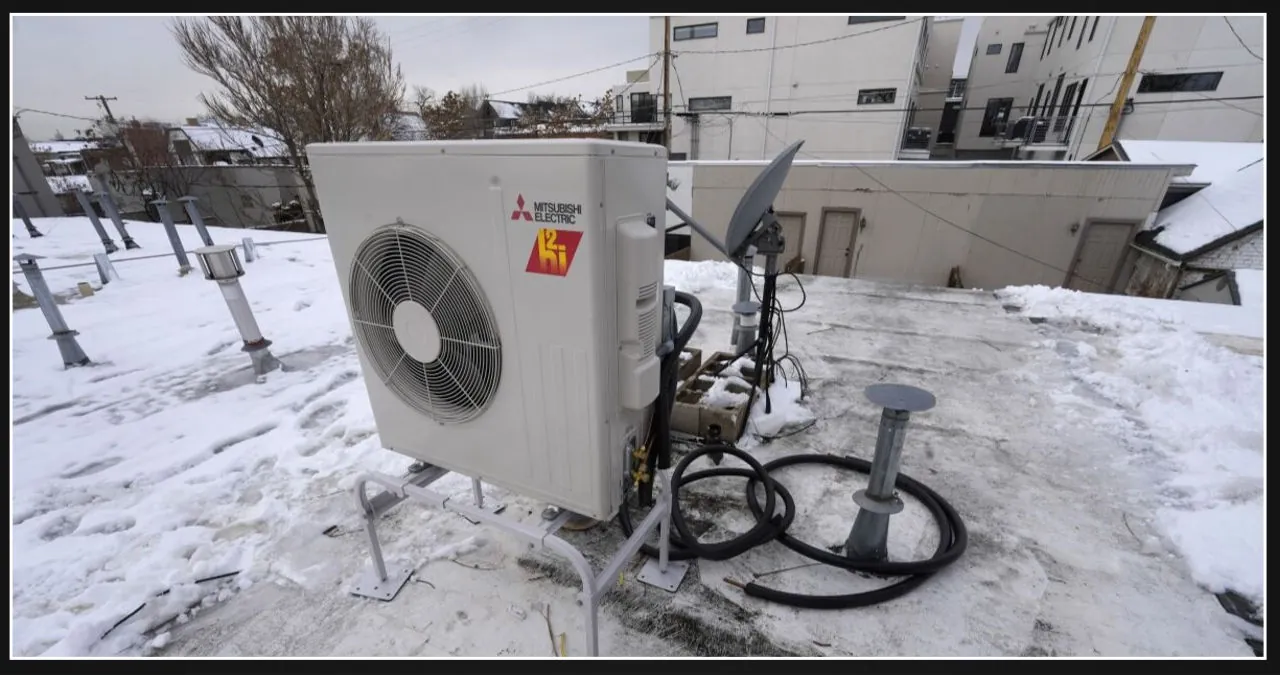Pennsylvania households are set to benefit from new rebates for electric appliances and home improvements that enhance energy efficiency.
The Biden administration has given the green light to applications for federal funding for home energy rebate programs in nearly twenty states, including Pennsylvania, Delaware, and New Jersey. This approval came just before President Trump issued an order to halt grant spending under the climate law that supported these rebates.
According to Randy Libros, a volunteer with the nonpartisan Pennsylvania advocacy organization POWER Interfaith, the recent developments are positive for both homeowners and tenants. In an email, he stated, “This is good news for homeowners and tenants. It’s also good news for the environment as these programs can help us transition away from fossil fuels.”
In the Delaware Valley, Pennsylvania was granted the largest federal award for its rebate programs, amounting to $260 million. New Jersey was allotted nearly $183 million, while Delaware received close to $66 million. These rebates can be used to cover the costs of energy-efficient appliances and home improvements, such as electric stoves, electric heat pump HVAC systems, hot water heaters, clothes dryers, insulation, air sealing, and electric wiring.
“We are making investments that combat climate change,” stated Alejandra Mejia Cunningham, who holds the position of senior manager of state buildings policy, climate & energy at the Natural Resources Defense Council. “Simultaneously, these investments are enhancing our well-being, providing us with greater comfort, and ultimately, benefiting our financial resources.”
The Biden Administration made a final push to release climate-related funding before leaving office, which included rebate funding. Additionally, the Department of Energy under President Biden announced on Friday that it had reached an agreement with the Mid-Atlantic Clean Hydrogen Hub (MACH2), a controversial organization, granting them over $18 million to begin the development of hydrogen production facilities.
President Trump wasted no time in taking action on his first day in office. He immediately declared a “National Energy Emergency,” urging executive agencies to utilize emergency authorities in order to increase the production of various energy sources such as oil, gas, coal, uranium, geothermal, and hydropower. As part of this initiative, he temporarily put a halt to leasing and permitting for wind energy projects. This bold move demonstrated his commitment to strengthening the country’s energy sector and ensuring its resilience.
The United States currently leads the world in oil and gas production, surpassing all other countries. Under the leadership of President Biden, oil production has reached unprecedented levels, resulting in substantial profits for oil companies. However, it is important to acknowledge that the burning of fossil fuels is a significant contributor to climate change. This global phenomenon is responsible for rising temperatures, intensifying storms, and prolonging the duration of wildfire seasons.
Former President Trump took action to withdraw the United States from the Paris climate agreement on Monday. Additionally, he instructed agency heads to conduct a comprehensive review of regulations that limit consumer choice in appliances. Experts have noted that undoing the energy efficiency standards for appliances implemented during the Biden administration may present challenges for the new government.
The Inflation Reduction Act has seen affluent households benefiting more from Biden’s tax credits for home electrification and energy efficiency. However, the focus of the home energy rebate programs is to assist low- to moderate-income households in affording home improvements that can effectively reduce their energy bills. In Philadelphia, residents from Black, Hispanic, and low-income backgrounds are known to allocate a larger portion of their income towards energy expenses compared to households in general.
Ari Matusiak, CEO of Rewiring America, a national nonprofit that promotes electrification and related government rebates and tax credits, emphasized the significance of these rebates. He highlighted how these rebates play a crucial role in assisting working families in the United States. By providing financial support, these rebates enable families to access dollars that help reduce the cost of energy-efficient machines. As a result, families can save money on their energy bills while benefiting from better and more efficient appliances.
States develop their rebate programs based on guidelines established by the U.S. Department of Energy, as directed by the Biden Administration. These guidelines mandate that a portion of the funds be allocated specifically for families who fall below certain income thresholds.
Pennsylvania, Delaware, and New Jersey have all announced their plans to launch rebate programs this year. Pennsylvania is targeting an early 2025 rollout for some of their rebates.
The three states are set to provide a wide range of rebates offered by the federal program. These rebates will cover appliances, home electrification infrastructure, and energy-saving home retrofits. However, Pennsylvania intends to limit the energy-saving home retrofit rebates to multifamily housing.
The income eligibility requirements for certain rebates may vary depending on the state. However, all three states intend to limit appliance rebates to households with an income no greater than 150% of the area median income.
Pamela Darville, a dedicated volunteer with POWER Interfaith and a leader of the organization’s climate justice and jobs team, emphasizes the importance of ensuring that the rebates are accessible to low-income neighborhoods that are grappling with energy poverty. To achieve this, she suggests that Pennsylvania should conduct extensive outreach efforts in these communities. Additionally, she recommends making the application process user-friendly and available in multiple languages. Collaborating with community-based organizations to identify eligible applicants, providing long-term maintenance assistance, and ensuring that the rebates reduce costs immediately without the need for families to wait for reimbursement are also essential steps to consider.
“We believe that these measures will help ensure a fair distribution of resources by the government,” Darville stated. “While everyone desires energy-efficient appliances, there are some individuals who simply cannot afford them.”







Leave a Reply